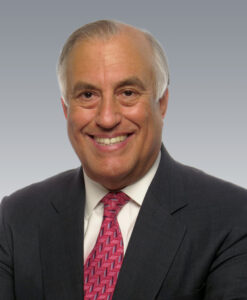Silent high blood pressure and an elevated heart rate can be risk factors for heart disease. These can both be diagnosed with a cardiac consultation along with an EKG. An evaluation can also determine the probability of future risk for a heart attack with simple non-invasive testing.
You must understand the difference between your heart rate and blood pressure numbers and what they signify to enjoy a healthy and stress-free life. Abnormal or too high or low readings indicate a problem that needs medical attention as they affect heart functioning. Schedule an appointment at the closest office with Dr. Steven Reisman in the New York Cardiac Diagnostic Center to have your heart condition accurately diagnosed with the help of the most advanced equipment and screening methods. The expert doctor offers precise assessment and most individualized care to address your concerns and prevent complications resulting from fluctuating blood pressure and pulse rate.
Blood pressure and heart rate are two separate measurements. They are measured at the same time when you visit a doctor, but they are different factors in heart health and play a significant role in maintaining overall wellbeing.
Heart rate and blood pressure are vital signs. They are closely monitored by healthcare professionals to determine overall fitness particularly heart and vascular conditions.
What Is Blood Pressure?

Blood pressure is the force exerted against the artery walls when blood pumps through the body. It measures how strongly or with how much pressure your heart and blood vessels pump blood to the rest of your body.
Blood pressure is measured with two numbers. The top number or the systolic pressure determines the pressure as the heart beats and moves blood into the arteries. The bottom number or the diastolic pressure measures the pressure as the heart relaxes between beats.
Hypertension or high blood pressure means the heart is working too hard. It can weaken the heart and damage blood vessels if not controlled. If your blood vessels cannot move blood through the body effectively, the heart and other essential organs such as the eyes, brain, and kidneys may not get the oxygen and nutrients they need. Consistent high blood pressure raises the risk of heart disease, heart attack, heart failure, stroke, and kidney disease.
Hypotension or low blood pressure means the pressure in the arteries is low. It is not a serious problem, but consistently low blood pressure can lead to symptoms like fatigue, dizziness, weakness, and blurry vision that may become serious in the long run.
A blood pressure reading of 120/80 is considered ideal.
What Is Heart Rate?
Also called the pulse rate, heart rate is the number of times your heart beats per minute. Heart rate can go up and down based on the level of activity and fitness, age, emotions, use of medication, weather, and other factors throughout life. Even body positions, such as sitting down or standing can sometimes influence heart rate.
Heart rate varies from person to person. For most adults, a resting heart rate of 60 to 100 beats per minute is considered normal. People who exercise regularly often have lower resting heart rates.
There are certain situations, such as periods of acute stress, danger, or illness, when blood pressure and heart rate increase simultaneously. Such instances are rare, but if you experience elevated blood pressure and heart rate often, it must be checked by an experienced doctor.
Difference Between Blood Pressure and Heart Rate
The difference between pulse rate and blood pressure lies in what they measure and what they affect.
The heart rate can increase without any changes occurring in the blood pressure. As the heart beats faster, healthy blood vessels expand in size to allow increased blood flow, which helps the blood pressure to remain stable. It mostly happens during exercise when the heart rate increases significantly, but it may only affect the blood pressure slightly.
The readings sometimes may have numbers that overlap or are in the same range, but these numbers represent different things. There are normal ranges and goals for heart rate and blood pressure that indicate cardiovascular health and performance.
Measuring heart rate does not give any information about high or low blood pressure. It can only indicate cardiovascular activity and oxygen consumption. Hypertensive people must keep an eye on their blood pressure and consult their physician regarding management and treatment options. Physicians monitor their patients’ blood pressure and heart rate as both help determine health conditions and detect abnormalities.
If you are concerned about your blood pressure and heart rate and seek the best professional advice, visit New York Cardiac Diagnostic Center for a physical exam and heart screening. Dr. Steven Reisman is a leading cardiologist and uses the most advanced and accurate tests to detect your heart condition and problems. He will offer personalized care and address your concerns most efficiently, discussing prevention and treatment options to help you enjoy heart health and overall wellbeing in the long run.

Dr. Steven Reisman is an internationally recognized cardiologist and heart specialist. He is a member of the American College of Cardiology, American Heart Association, and a founding member of the American Society of Nuclear Cardiology.
Dr. Reisman has presented original research findings for the early detection of "high risk" heart disease and severe coronary artery disease at the annual meetings of both the American College of Cardiology and the American Heart Association. Dr. Reisman was part of a group of doctors with the Food and Drug Administration who evaluated the dipyridamole thallium testing technique before the FDA approved it.
Dr. Steven Reisman's academic appointments include Assistant Professor of Medicine at the University of California and Assistant Professor at SUNY. Hospital appointments include the Director of Nuclear Cardiology at the Long Island College Hospital.



